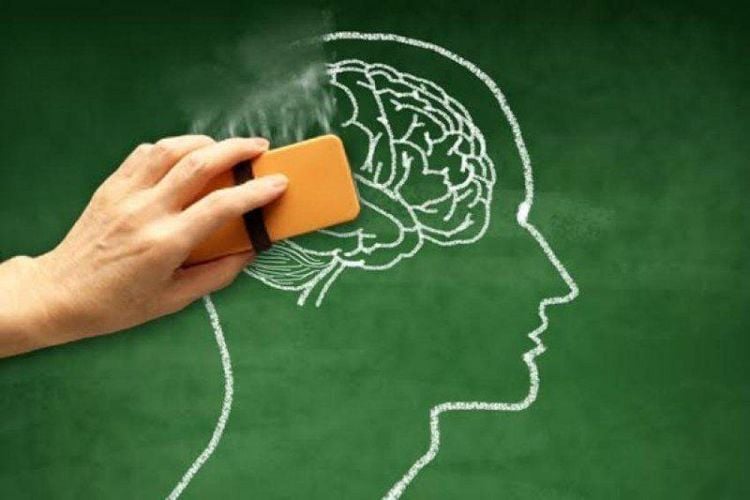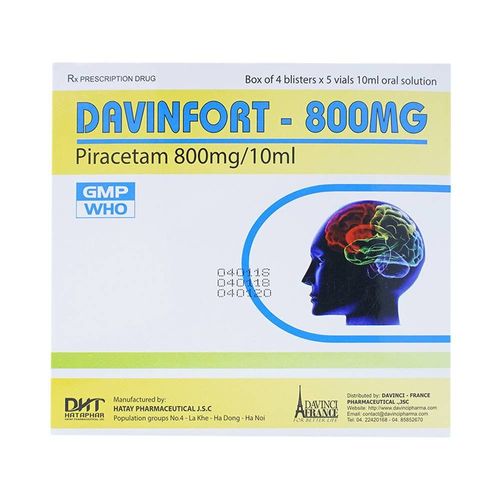This is an automatically translated article.
As you get older, your ability to learn or remember becomes more and more difficult. This could be a sign of memory loss in the elderly. However, age is not really a big barrier to a person's ability to remember. You absolutely can train your brain every day to keep yourself a sharp mind as you get older.
1. Memory decline in the elderly
Most of us have noticed some change in the brain's ability to remember things with increasing age. You must have been in a situation where you forgot what you were looking for in the kitchen, or couldn't remember a familiar name when talking to other people. You may even miss an appointment because you can't remember it.
The above condition is called memory impairment, it can occur at any age, however memory decline tends to be more pronounced as we age. It can also be a sign of dementia or loss of intellectual function in the elderly.
In fact, significant memory loss in older adults is not a normal part of aging but can result from other causes, such as neurological disease or brain injury, in Alzheimer's disease is one of the most feared diseases.

Bệnh Alzheimer tăng nguy cơ suy giảm trí nhớ ở người già
Most of the transient memory problems you experience with age are a reflection of normal changes in brain structure and function. These changes can slow down certain cognitive processes, making it a little more difficult to quickly learn and remember new things. This is sometimes frustrating when we're trying to learn a new skill or take on loads of other responsibilities.
Now, thanks to decades of research, scientists have found many different strategies to help the elderly to protect and sharpen their minds. Here are some ways you can keep your brain sharp as you age.
2. How to keep your brain sharp as you age?
2.1 Never stop learning
According to research, higher educational attainment is associated with better brain performance in old age. Experts say that mental activity habits can help keep memory sharper.
You can challenge your brain through exercises that activate processes that help maintain individual brain cells and stimulate them to communicate with each other. In addition, you should also learn a new skill, or regularly participate in brain-training activities, such as reading, playing shuttlecock, playing chess, writing your own books, jigsaw puzzles, doing crossword puzzles. , take a class, pursue music or art, redesign your garden layout,...Besides, you can also improve your learning and memory by suggesting or volunteer for a project related to a skill you don't use often. Overall, building and preserving brain connections is an ongoing process, so make your learning a priority throughout life.

Không ngừng học hỏi tăng cường khả năng ghi nhớ
2.2 Use all your senses
When you start learning something new, the more senses you use, the more your brain will increase its ability to retain information. In one study, scientists tested older adults and presented them with a series of emotionally neutral images, each presented with a distinct smell. The researchers asked them not to memorize what they saw. They were then shown the photos again, but without the smell, and asked to identify the photos.
The results showed that the study participants had excellent memory for all the pictures that were paired with smells, especially those related to pleasant smells. Through brain imaging, it was found that the piriform cortex, the brain's main odor processing region, became highly active when the participants saw the original images paired with the smell, even though they don't try to memorize them.
The above experiment has shown that we should try to use all of our senses when starting to learn something new and unfamiliar. For example, try to guess the ingredients when you smell or taste food at a new restaurant.

Sử dụng tất cả các giác quan giúp bộ não tăng cường khả năng ghi nhớ
2.3 Believe in yourself
Myths about aging can contribute to your poor memory. Middle-aged and older learners tend to perform worse on memory tasks because of their exposure to negative stereotypes about aging and memory.
In addition, people who believe they cannot control their memory function are less likely to maintain or improve their memory skills. This may increase the risk of cognitive decline in the elderly. Conversely, if you have a strong belief that you yourself can improve your memory and turn that belief into reality, you will increase your chances of maintaining a sharp mind.
2.4 Optimizing brain usage
You will not need to use your mental energy to remember the location of the furniture in the house or the time to organize an event through specific planning each day for yourself, making a list To-do lists and notes of important events to remember. This will help you reduce distractions so you can better focus on learning and remembering new things.
2.5 Repeat what you want to remember
When you want to remember information that you have just heard, read or thought about, it is best to repeat it out loud or write it down. In this way, it can help you consolidate your memory or connect information that needs to be memorized. For example, if you just learned someone's name, try to mention their name as much as possible in conversation.
Thus, the more times you try to repeat new information, the more likely it is to remember them.

Lặp lại những điều mà bạn muốn ghi nhớ giúp giữ trí não minh mẫn
2.6 Memorizing properly
Repetition of information for memorization is most effective when you repeat it at the right time. In other words, you shouldn't repeat something over and over in a short period of time as if you were trying to cram for an exam. Instead, allow a period to repeat the information you've just come across after a certain amount of time, such as starting over every hour, then every few hours, once a day, or even. even once a week.
Spaced repetition is especially valuable when you are trying to remember complex information. Research also shows that spaced review sessions can improve information retention not only in healthy people but also in people with cognitive problems, such as multiple sclerosis. hard .
In addition to exercise and lifestyle changes, an active way to keep your brain sharp as you age is to have regular health check-ups to screen for diseases at reputable medical facilities. Currently, Vinmec International General Hospital has been and continues to invest in renovation of modern equipment, and at the same time, apply science, technology, and the latest medical treatments to treatment. Therefore, Vinmec International General Hospital is considered as an international standard medical care address in Vietnam.
Currently, Vinmec is implementing a lot of periodic health checkup packages suitable for each age, gender and individual needs of customers with very favorable price policy, including:
General health checkup package Work permit- issue work permit Child health check-up package Standard general health check-up package Special general health check-up package VIP general health check-up package Diamond general health check-up package Advantages of Vinmec's health check-up packages mean that customers will be screened and screened by a system of modern equipment to help support the best diagnosis today such as PET/CT, MRI, CT 640, system The world's leading advanced ultrasound machine, international standard laboratory system,... After a general examination, if any diseases are detected, customers can use services from other specialties. hospital with outstanding quality of treatment.
Please dial HOTLINE for more information or register for an appointment HERE. Download MyVinmec app to make appointments faster and to manage your bookings easily.
Reference source: health.harvard.edu













